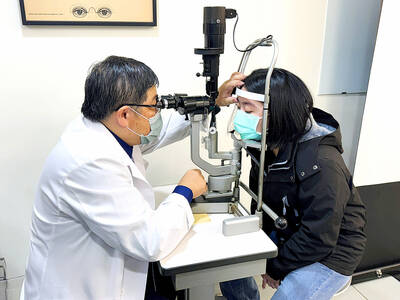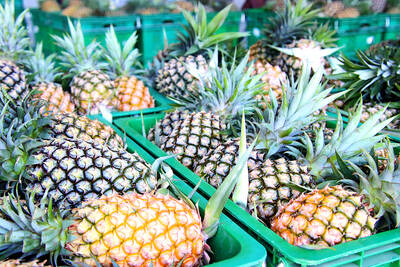In 18th and 19th century Europe and the US, people would evade laws against begging by playing music from a portable organ, accompanied by a performing monkey. Since the busker could say he was providing a service of sorts, he couldn’t technically be accused of begging. The buskers playing the organs were known as organ grinders.
There was a similar phenomenon in China, too: street performers with monkeys trained to do certain tricks. There is a story of how one performer in China was angered by his own monkey, which would not do as it was told. One day, the busker went to the market and bought a live chicken. When his monkey misbehaved during the next performance, the busker took the chicken and killed it in front of the monkey. From that point on, the monkey did as it was told.
The idiom 殺雞儆猴 means, literally, “kill a chicken to scare the monkey.”

Photo: Paul Cooper, Taipei Times
照片:台北時報記者古德謙攝
In English, we can say “to make an example of” someone, usually by punishing them in a certain way to discourage others from doing the same thing.
十八、十九世紀時,乞討在歐美國家是違法的,但有些人會利用演奏手搖風琴的方式,旁邊帶著一隻戲耍的猴子,來鑽法律的漏洞攢錢。街頭藝人會說他們是在提供某種服務,因此不能告他們乞討。這類形式的街頭藝人就叫手搖風琴師。
中國古代也有類似的街頭藝人。他們會帶猴子上街表演,受過訓練的猴子會玩特定的把戲。有這麼一個故事,說:以前有一個街頭藝人被他的猴子搞得火冒三丈,因為他的猴子不愛聽他指揮。有一天,這個人就跑去市場買了一隻活生生的雞,然後猴子表演中又不乖乖聽話時,他就當著猴子的面把雞殺了。自此之後,不管他說什麼,猴子都言聽計從。
「殺雞儆猴」這個成語的意思就是,殺了雞來警告猴子。英文可以說「to make an example of」,也就是藉由懲罰某人來警告其他人不要做同樣的事情。

A: Recently, I’ve been seeing mosquitoes flying around in front of my eyes. The doctor said it’s the “flying-mosquito disease.” B: Flying mosquitoes? What a strange name. A: They’re actually called “floaters” in English, meaning floating debris. When fibrous substances in the vitreous body inside the eyeballs increase, floaters can appear in the visual field. B: Oh my goodness. Can you get rid of them? A: According to ophthalmologist Horng Chi-ting’s research, taking the enzymes of certain fruits is likely to help reduce floaters. A: 我最近一直覺得眼前有蚊子飛來飛去,結果醫生說是「飛蚊症」。 B: 飛蚊症?好奇怪的病名。 A: 英文名稱叫「floaters」, 也就是漂浮物的意思。 因為眼球的玻璃體中纖維化物質增多,導致視野出現漂浮物。 B: 天啊!要怎麼把蚊子趕走? A:

Bilingual Story is a fictionalized account. 雙語故事部分內容純屬虛構。 I stand by the Miluo River as dusk falls. The court betrayal is too much. I served Chu with loyalty. I forged alliances and fought corruption. But the whispers of jealous courtiers, the murmurs of treason, spoke louder. The king cast me out. The water looks calm. It promises peace. I step in. The river is cold against my legs. I hear shouts behind me — fishermen calling my name. I keep walking. The calls grow louder, but I do not turn around. The water rises to my chest. It pulls at me. I

In Taiwan, people can use a platform to rent a power washer for a weekend or share unused garage space for someone’s storage needs. These are examples of the sharing economy, a consumption model that has gained widespread adoption worldwide. This approach allows people to rent or share assets like cars, homes or even services, typically through online platforms. This innovative model poses a simple yet powerful question: why purchase infrequently used items when sharing is more practical? By making useful but idle resources accessible, the sharing economy turns them into sustainable opportunities. Internationally, platforms like Airbnb and Uber have popularized

A: What types of fruit enzymes should we take to help reduce eye floaters? B: According to a study published in the “Applied Sciences” journal by Taiwanese ophthalmologist Horng Chi-ting, pineapple, papaya and fig supplements can improve symptoms. A: Pineapples are in season now, so you should munch on more of those to get rid of floaters. B: Not quite. Enzymes can be damaged by our stomach acid if we eat the fruit directly. The doctor says taking fruit enzyme capsules is better for absorption. A: Most importantly, we should reduce our use of personal electronics to prevent floaters from